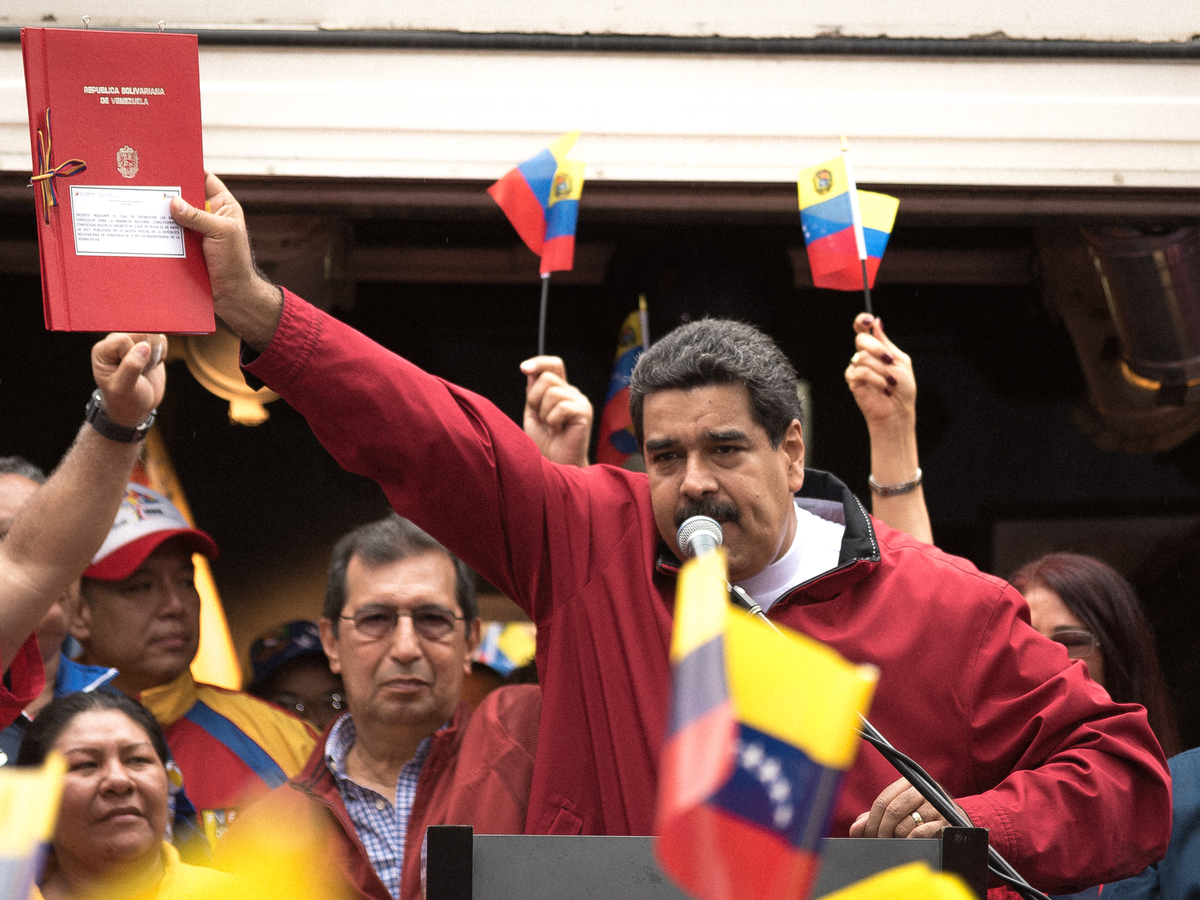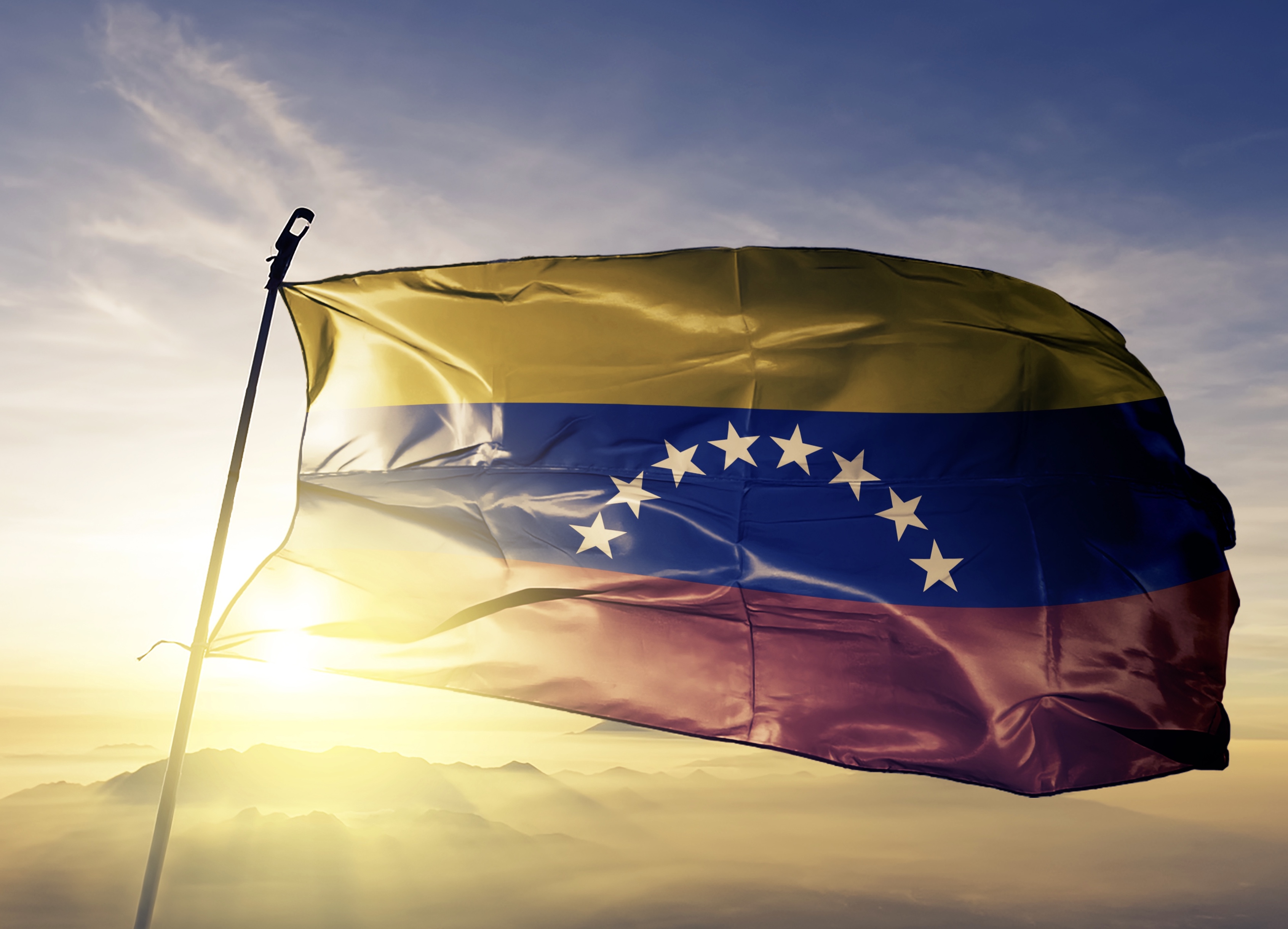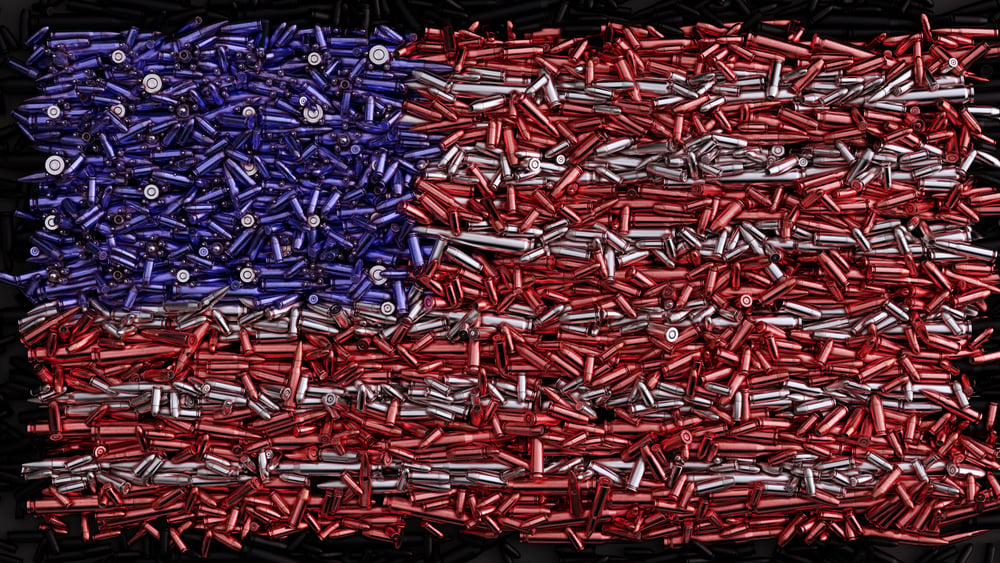
The U.S. Congress is considering more than 20 bills on cryptocurrency. One deserves special attention: S.1025, the Venezuela Emergency Relief, Democracy Assistance and Development Act (VERDAD). “Verdad” is Spanish for “truth.” If VERDAD passes, it will be the first time a specific crypto has been deemed illegal for Americans at home or abroad to use.
Also read: North Korea Plans to Launch Cryptocurrency to Bypass Economic Sanctions
The Truth About Verdad
The Venezuela Emergency Relief, Democracy Assistance and Development Act seeks to ban U.S. nationals and organizations from holding, trading, buying, and spending the state-issued Venezuelan crypto the Petro, which is backed by reserves of oil, gasoline, and diamonds—at least, in theory. The Petro was created in 2018 by Venezuelan President Nicolás Maduro’s regime as a way to circumvent U.S. sanctions and to access international financing.
If VERDAD passes, it will be the first time a specific type of crypto has been outlawed by the U.S. Jason Brett, founder of Value Technology Foundation, a research company devoted to blockchain law, explains: “The implications for this are huge because it could be bitcoin or some other cryptocurrency inserted into this language, we’re talking about a road map for how to ban a particular cryptocurrency.” The Act would set a precedent for the banning of any other crypto in the future.

A Bad Bill Dressed as a Good Deed
The potential impact on crypto usage receives little attention compared to VERDAD’s other goals, which are expressed in lofty philanthropic terms. The act expands humanitarian aid to Venezuela by $400 million, for example, and calls for the restoration of human rights and democracy. Most articles on VERDAD do not even mention the Petro.
The closest they come: the Secretary of State will recover assets stolen from the people of Venezuela and its institutions by means of special financial investigations to track the assets taken through money laundering, theft, corruption, and other “illicit” means. The Secretary of State and the Secretary of the Treasury are to consult with the Chairman of the Securities and Exchange Commission as well as the Chairman of the Commodity Futures Trading Commission in order “to develop a methodology to assess how any digital currency, digital coin, or digital token, that was issued by, for, or on behalf of the Maduro regime is being utilized to circumvent or undermine United States sanctions.”

Title VII of VERDAD: “Cryptocurrency sanctions and ensuring the effectiveness of United States sanctions.” Note: the wording of S.1025 presented is as of June 3, 2019. If passed, the wording may vary somewhat.
Since the Petro has scant value as a currency, the construction of a monetary tracking system and authority could be one of the real goals of VERDAD. Once established, however, who would monitor the monitors and ensure they stay within the vague and sometimes unstated boundaries of VERDAD?
From Whence Did VERDAD Come?
On March 19, 2018, President Donald Trump signed Executive Order 13827: Executive Order on Taking Additional Steps to Address the Situation in Venezuela. It was signed one month after the Petro’s pre-sale launch and on the same day the pre-sale ended. A week later, the Petro was officially inaugurated.
VERDAD seeks to enact the order into law. What is the difference between the two? An executive order is a directive issued by a sitting President which determines the operations of the federal government; within this constraint, the directive has the power of law. But for it to apply outside of the federal government, it must be enacted into law.
Order 13827 states, in part:
I, DONALD J. TRUMP, President of the United States of America,… in light of recent actions taken by the Maduro regime to attempt to circumvent U.S. sanctions by issuing a digital currency in a process that Venezuela’s democratically elected National Assembly has denounced as unlawful, hereby order as follows…[A]ny digital currency, digital coin, or digital token, that was issued by, for, or on behalf of the Government of Venezuela on or after January 9, 2018, are prohibited…
Executive Orders are never the starting point of a political story, however; they are the result of one. Arguably, the starting point was the election of the socialist Hugo Chávez as President in 1999, which caused America to losE much of its influence in the region. The Venezuela-U.S. relationship became so tense that Chávez accused President George W. Bush of supporting a failed coup attempt against him in 2002. The accusation is unproven.
Fast forward to January 2019. The American-backed Juan Guaidó swears himself in as interim president of Venezuela even though Maduro—Chávez’s chosen successor—retains actual power. Trump immediately recognizes Guaidó and declares Maduro to be an illegitimate leader. Other nations follow Trump’s lead, but the attempted coup is badly bungled. Maduro retains power, although the situation is unstable.

A History of Sanctions and Bullying
The U.S. has a long history of imposing financial sanctions upon objectionable regimes in order to cut them off from foreign investment and reserves; money is used as a tool of foreign policy and vice versa. Sometimes the strategy aims at extracting concessions, as with the current tariff war with China. Sometimes it aims at regime change, as with Venezuela. When the economy of a targeted regime crumbles, the U.S. blames the disaster on the leaders and so lays the groundwork for a coup, police action, or an economic takeover, often phrased in humanitarian terms.
Trump wants a U.S.-friendly regime in Venezuela, not only to access the nation’s vast oil resources but also because the current situation allows China and Russia to become entrenched in South America. Both nations are financial crutches for Maduro, without whom he could not retain power. In turn, China and Russia receive inexpensive access to Venezuelan resources, and they maintain their spheres of influence. Again, monetary policy is intimately connected with foreign policy goals. Analysis by the D.C.-based Atlantic Council illustrates this connection between Russia and Venezuela:
The success of Moscow’s policy in Venezuela rests on its military, economic, and financial clout…As of July 2019, Venezuela currently owes $10 billion for the purchase of 36 Russian Su-30MK2s fighter jets, $1.1 billion for Rosneft investment into Venezuelan oilfield development, and has received more than $4 billion of investment from Russia, according to Russian Economic Development Ministry.
An added wrinkle: China wants its fiat, the yuan, to replace the U.S. dollar as the world’s default currency. This makes the competition for control of money and its movement more urgent. China is not alone in waging monetary war, and Venezuela uses the conflict to advantage. In September 2017, Reuters reported: “’Venezuela is going to implement a new system of international payments and will create a basket of currencies to free us from the dollar’, Maduro said in an hours-long address to a new legislative superbody. ‘If they pursue us with the dollar, we’ll use the Russian ruble, the yuan, yen, the Indian rupee, the euro’.”
A March 26, 2018 article in Venezuela Analysis announced the official release of the Petro, which could be bought and spent anywhere in the world. The article declared: “The cryptocurrency can be purchased in Chinese yuan, Turkish lira, euros, Russian roubles, as well as in other cryptocurrencies, including bitcoins, ethereums, or litecoins. Money exchanges are to be opened in Venezuela and internationally.” It also reported Maduro’s final word on the U.S. dollar: “We won’t dollarize our economy, we are going to defend our Bolivar.”
Power politics underlies VERDAD. The May 22 Press Release by which the act moved from Senate Foreign Relations Committee to the full Senate states: “The legislation was amended to include three bills approved by the House of Representatives to expand U.S. humanitarian assistance in Venezuela (H.R. 854), prohibit U.S. exports of arm sales to the Maduro regime (H.R. 920), and counter Russia’s presence and influence in Venezuela (H.R.1477).” Nothing is more powerful in power politics than the control of money.

Whither VERDAD?
If VERDAD is an isolated attack on the Maduro regime, then it may have minimal consequences for cryptocurrency in general. But there are reasons to worry.
- It would be the first ban on the use of a specific cryptocurrency by American individuals and organizations; currently, as long as taxes are paid and some regulations met, crypto transactions are legal.
- Expanding the ban to other forms of crypto might be as easy as filling in a blank.
- It would establish a new monetary-tracking authority and system to monitor the Petro. The system could be used to monitor the movement of other financial vehicles.
- Within 180 days of establishing the system, the Secretary of State and the Secretary of the Treasury must brief relevant congressional committees, thus raising Congressional oversight of crypto.
- VERDAD would be a leap toward federalizing and centralizing policy on crypto.
- The Act could be the leading edge to open the way for the approximately 20 other bills in Congress.
There are reasons to believe VERDAD will pass. Trump is not a fan of crypto, especially the unregulated type, and will do nothing but applaud a bill that embeds his executive order into law. Added to this, Congress has become more aggressive toward crypto. In the second week of September alone, Congress hosted three hearings related to cryptocurrency, largely due to concern over Facebook’s intentions to release Libra. So far, VERDAD appears to have bipartisan support; certainly, its prohibitions on the Petro are not likely to elicit debate.
But there are also reasons to believe VERDAD may not pass. For one thing, some observers expected it to be enacted already, but the bill is dragging. Moreover, the general bill may have overreached by including foreign policy goals that are too ambitious. The summary write up at Congress.gov states, for example:
The bill imposes sanctions on foreign persons responsible for or complicit in corruption or activity undermining Venezuela’s democratic institutions. Sanctions include barring entry into the United States and various financial restrictions. The bill also imposes various sanctions targeting the Maduro regime’s ability to finance debt, trade gold, and use cryptocurrencies to evade U.S. sanctions. The bill directs the President to prevent Russia’s government-controlled oil company Rosneft from acquiring control of critical U.S. energy infrastructure, including assets belonging to Venezuela’s state-owned oil company, Petroleos de Venezuela, S.A.
Perhaps this overreach is why Skopos Labs—the Automated Predictive Intelligence service used by the govtrack.us site—gives VERDAD a poor chance of passing. Even if defeated, however, Brett’s warning about Congress should be heeded: “there are 20 active bills” by which crypto “could be impacted and could change in some way shape or form along the way. It’s very important that we watch them, almost like the weather map.”
Do you think VERDAD could lead to usage of other cryptocurrencies being criminalized in the U.S? Let us know in the comments section below.
Images courtesy of Shutterstock.
Did you know you can verify any unconfirmed Bitcoin transaction with our Bitcoin Block Explorer tool? Simply complete a Bitcoin address search to view it on the blockchain. Plus, visit our Bitcoin Charts to see what’s happening in the industry.
